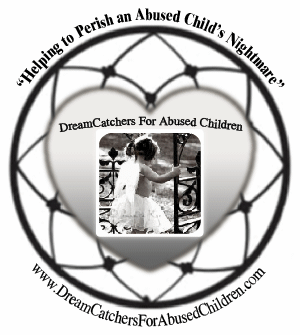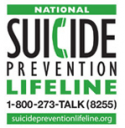How to Teach Your Kids About Substance Abuse
 In a world where illegal substances are completely accessible, giving your child the all-important talk on drugs can be difficult and somewhat alarming. How are you able to get on their level to communicate the dangers and how can you tailor your conversation to be age-appropriate? These are some of the questions parents ask themselves, however, with the correct tactics, the drug-talk doesn’t have to be made such a big deal.
In a world where illegal substances are completely accessible, giving your child the all-important talk on drugs can be difficult and somewhat alarming. How are you able to get on their level to communicate the dangers and how can you tailor your conversation to be age-appropriate? These are some of the questions parents ask themselves, however, with the correct tactics, the drug-talk doesn’t have to be made such a big deal.
The earlier you start talking to your kids about drugs, the better, as they may find it easier to talk to you as they get older. If they don’t feel they have enough support back home from parents or loved ones, they may choose to seek help and advice elsewhere – meaning you’ll be left completely out of the loop. Your views on aspects such as alcohol and drugs can hugely influence their own perceptions. Therefore it’s best to nip it in the bud at a very early age and allow them to understand the severe consequences of drug taking.
Tailoring your drug-talk to suit the age of your child:
Preschool to the age of 7
Although it may seem young to be discussing such a deep subject, it’s always an idea to drop hints on the subject matter around the time they start school. This is the age at which they will be mixing with other children and could get led astray in other ways. Therefore it’s best to set the groundwork at their very young age.
Food is a great tactic to explain how what they choose to consume can be good and bad for the body. To put into context, if your child is eating an apple, explain fruit is eaten to make them strong and healthy, whilst the likes of smoking can make a person sick. You may also discuss how medicine and tablets are given for a reason to make someone well when they are sick, rather than something they can take as and when they please.
You should also make use of any characters on TV who are seen with a cigarette in hand or who are discussing the act of smoking. You may then decide to start a conversation as to how cigarettes become are harmful to the body and find out more about what they understand about addictions.
Although these discussions will be serious in nature, try not to get too deep or overwhelming with the subject. Aim to keep calm and allow your child to ask any questions they may have which allows for more open discussion.
Ages 8 – 12
During these ages is when your child essentially goes through the puberty stages and learns more about teenage life. You may find that your child starts to ask more questions about alcohol, smoking, and drugs if they have heard others discussing it; or you may even decide to begin a few relaxed chats to find about what they know and think about drugs.
Your child may start to become much more aware of the news or be exposed to conversations in the media, in which the topic of drugs is discussed. If they happen to be in the room, casually question them to see if they understand the basics of what is being spoken about. This age is crucial to start portraying your concerns on drug addiction, as they may still be willing to be open and come to you with any concerns or questions.
Teenage years
The teenage years are those in which they can be led astray, therefore making sure they are aware of the dangers of drugs when they start high-school is important in keeping them on the right path.
They may still be open to having chats with you and if so, inform them of the dangers of driving under the influence of alcohol or drugs. It may even take the act of scaremongering your teenager, by spelling out the implications and legal issues which follow if they are caught with drugs in the system.
What should you include in your drug conversations?
Although you should tailor your conversations to be age-appropriate, there are a few basic ideas you may use to make sure your conversation is effective:
1. Ask about their thoughts
As you start the initial conversation, ask your child what they already know about drugs – are they aware of the dangers? Listen to what they have to say and challenge any misconceptions they may have. It’s recommended that parents talk to their child about the topic before they have the opportunity of taking the substances later on in life.
2. Discuss family values
If you’re set against drug use, you should explain what is acceptable in your family and how you personally feel about drug consumption. You may decide to explain how yourself or their grandparents would feel if they were ever caught using and go on to suggest the dangers they could put themselves through if the drugs they use aren’t prescribed by a doctor. Put some consequences in place to make sure rules are never broken and communicate these rules often, so they know when they are over-stepping the line.
It’s also important to ensure you yourself aren’t guilty of giving confusing messages about prescription drugs, by giving your child medication over the slightest concern they have. Even if just a minor toothache, parents can be known to dish out painkillers which can portray the message that even prescription drugs are completely safe and can be used regularly. Be careful as to when you choose to give medicine and discard any leftovers, so bottles and pill packs are out of the reach of little fingers.
3. Give facts
Give your child an in-depth discussion about how drugs can affect the body by doing a bit of research beforehand. Or why not find a child-friendly video on the subject by taking a browse on YouTube?
You may wish to go into detail about how certain drugs used for medical purposes are given for a serious reason, whilst the likes of fentanyl can be used for treating the pain of cancer patients but can also become very addictive if used inappropriately. You may wish to mention that this particular drug was responsible for the death of many famous icons including the likes of Prince. Using real-life examples of celebrities, they would know, makes the subject much more hard-hitting and on their level. If you wish to read up about the risks and side effects of the drug, click here to discover more.
4. Reinforce your point
Although you may feel as though you’re lecturing, it’s best to bring up these conversations whenever you can to reinforce the message and be sure they understand the real dangers of how drugs and how they can have severe impacts on their long-term health and wellbeing.
5. Get to know your child’s friends
If your child is slightly older, you may be more intrigued to find out more about who they’re hanging around with at school. Invite their buddies round to the house for dinner or take an active interest in them.
If you have the gut-feeling these friends may be taking drugs; it can be a real worry in ensuring your child doesn’t get caught up in the addiction. If there are any suspicions whatsoever, you could always express your concerns and support them in finding a new set of friends – easier said than done but is always worth a shot.
Encourage independent thinking, by reassuring them to just be themselves and not to feel pressured into following the crowd, even if it means having to lose friends in the process.
6. Let them be responsible for their own actions
Whilst you may be doing everything you can to support your child and make sure they’re on the correct path, it is essentially up to them as to how they go about their lives – and you shouldn’t beat yourself up over the decisions they make. When it comes to it, all they can do is say ‘no’ to drugs and this choice will be completely out of your hands.
Let them know you’re there for them, but at the same time, part of the growing-up process is allowing them to take responsibility for their own actions.
7. Confront problems immediately
If you believe your child could be drug-taking, don’t wait to make a move and confront them over the situation. It may only have been a one-time occasion, but while some teens forget about drugs as they reach adulthood, others can face a lifetime of addiction.
8. Give support and help when necessary
Preventing the use of drugs can be achieved without even having to mention the subject. While it’s important to raise the flag on the issue, it’s even more crucial that your child feels as though their home environment is balanced and supportive. Many teens choose to take drugs because of stress or unhappiness, therefore, ensuring they have enough stability and emotional support could truly prevent drug use.
By the time you finish reading this, 15 children will have been abused; In the next five minutes, 30 more; Within the next hour, 360 more; And by tonight, close to 8,000+ children will have suffered from abuse, 5 of which will die. Child abuse has increased 134% since 1980 and is now considered a worldwide epidemic. The high jump in child abuse deaths and the shocking increase in statistics highlights the frightening lack of public knowledge.
Educate Yourself -- Learn the Facts
It May Just Save a Child's Life!!


















![Validate my RSS feed [Valid RSS]](http://dreamcatchersforabusedchildren.com/wp-content/uploads/2009/10/valid-rss.png)












